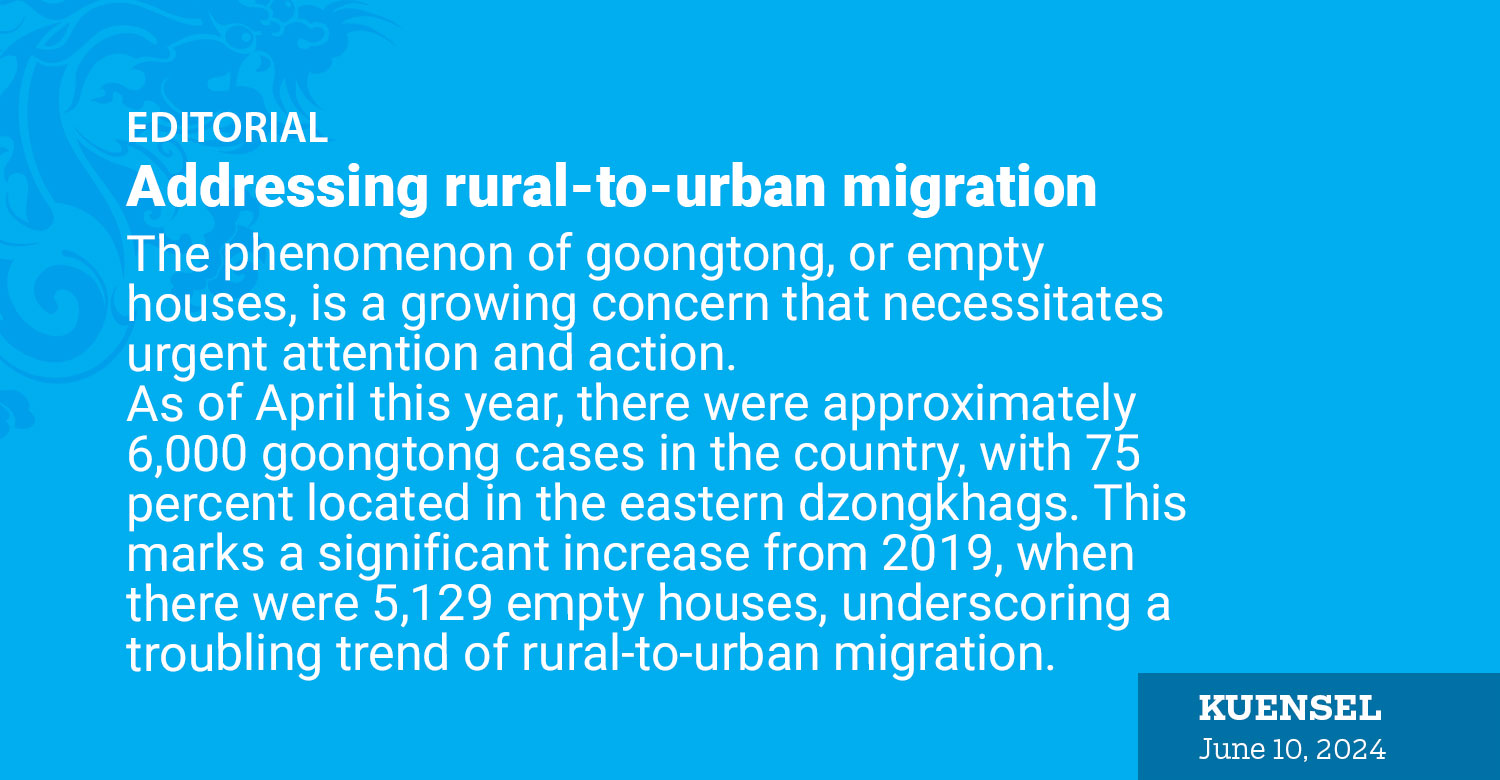The phenomenon of goongtong, or empty houses, is a growing concern that necessitates urgent attention and action.
As of April this year, there were approximately 6,000 goongtong cases in the country, with 75 percent located in the eastern dzongkhags. This marks a significant increase from 2019, when there were 5,129 empty houses, underscoring a troubling trend of rural-to-urban migration.
This exodus from rural areas is driven by a myriad of factors, primarily the lure of better economic opportunities, education, and healthcare facilities in urban centers. As young people leave their ancestral homes in search of these perceived benefits, they leave behind aging parents and abandoned homes. This migration not only disrupts the social fabric of rural communities but also threatens the sustainability of agricultural practices and local economies.
The implications of this rural exodus are profound. The abandonment of rural homesteads leads to the neglect of farmlands, resulting in decreased agricultural productivity. Bhutan, which prides itself on its agricultural heritage and self-sustenance, faces the risk of increased dependency on food imports. Moreover, the cultural heritage and traditional knowledge embedded in rural life are at risk of being lost as younger generations move away and adopt urban lifestyles.
Addressing this issue requires a multi-faceted approach. First and foremost, there must be a concerted effort to create viable economic opportunities in rural areas. This can be achieved through the promotion of agro-based industries, eco-tourism, and cottage industries that can provide sustainable livelihoods. Government incentives and support for small and medium-sized enterprises in rural regions can stimulate local economies and make rural living more attractive.
Improving infrastructure and services in rural areas is also critical. Access to quality education and healthcare should not be a privilege of urban dwellers alone. Investment in rural schools and health centres, coupled with the provision of reliable transportation and communication networks, can significantly enhance the quality of life in rural communities and reduce the allure of urban migration.
Moreover, promoting community-based initiatives that encourage young people to stay and invest in their villages can foster a sense of pride and responsibility towards their heritage. Programmes that celebrate and utilize traditional skills and knowledge can help bridge the gap between the past and the present, making rural life more appealing.
The government’s role in addressing this issue is paramount. Policymakers must prioritize rural development in their agendas and allocate sufficient resources to ensure the implementation of effective strategies. Collaboration with non-governmental organisations and international partners can also bring in expertise and additional funding to support these initiatives.
The preservation of rural life is not just about maintaining population numbers; it is about safeguarding the cultural and agricultural heritage that defines the nation. Addressing rural-to-urban migration is not merely a policy option but a necessity for the balanced development and holistic well-being of the country.


